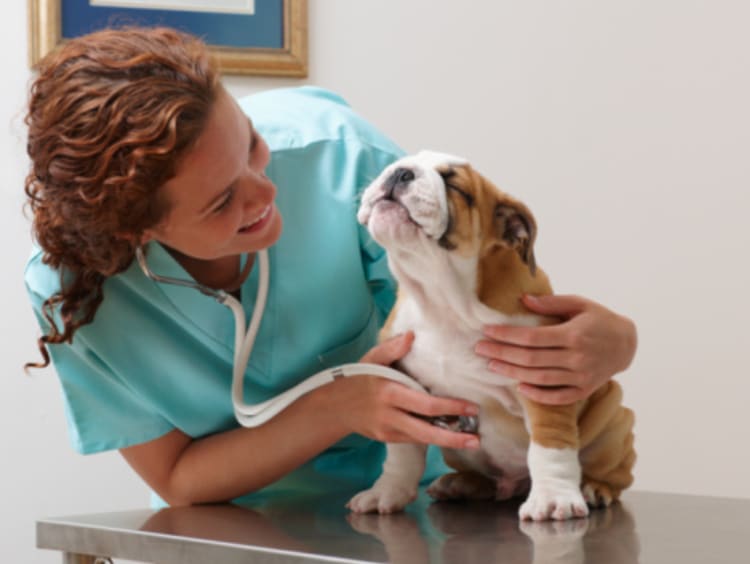Leading Reasons to Pick an Animal Hospital for Your Family pet's Long-Term Treatment
Leading Reasons to Pick an Animal Hospital for Your Family pet's Long-Term Treatment
Blog Article
Indicators It's Time to Browse Through Your Local Veterinarian
Recognizing when to seek vet care for your family pet is essential for preserving their general wellness and wellness. Being attuned to these nuances can make a considerable distinction in your pet's top quality of life.
Changes in Eating Behaviors
Changes in eating habits can be an essential sign of a family pet's overall wellness. An unexpected rise or lower in food intake can indicate underlying clinical issues that require vet focus. A significant decline in appetite might suggest stomach troubles, oral problems, or systemic diseases such as kidney condition or cancer. Conversely, an unanticipated rise in food intake could suggest metabolic conditions, diabetes mellitus, or even behavioral modifications.
It is important for family pet proprietors to monitor their family pets very closely and keep in mind any deviations from their typical eating patterns. This consists of not just the amount of food taken in but additionally adjustments in the sort of food preferred or reluctance to consume certain things. Additionally, animals may display modifications in consuming routines alongside other indications, such as lethargy, vomiting, or adjustments in habits, which can further help in determining prospective wellness problems.

Unusual Weight Loss or Gain
Keeping an eye on an animal's weight is as crucial as observing their eating behaviors, as inexplicable weight management or gain can show significant wellness issues. A noticeable modification in weight, whether it be a significant decline or an increase, need to not be ignored. Such fluctuations can signify hidden clinical problems such as diabetes, hyperthyroidism, kidney illness, or specific sorts of cancer.
In dogs, abrupt weight management can result from intestinal issues, parasites, or dental issues that affect their capability to eat. For cats, fat burning can be specifically worrying, as it might indicate a significant health problem that requires timely interest. On the other hand, unexplained weight gain can be linked to metabolic conditions, over-eating, and even certain medications that might change appetite.
It is crucial for family pet owners to monitor their animals' weight on a regular basis and to note any type of changes in their body problem. If you observe a regular fad of weight loss or gain over a brief period, it is suggested to consult your vet. Early detection and intervention can bring about extra reliable treatment options and better health outcomes for your precious pet dog.

Modified Behavior or Power Degrees
Often, pet owners may notice modified actions or power levels in their animals, which can be a critical sign of underlying health and wellness concerns. Adjustments such as raised sleepiness, lowered interest in play, or unusual aggression can indicate that something is awry. Pets that typically show high power degrees might unexpectedly come to be lifeless, while those that are generally tranquil may become restless or hyperactive.
Additionally, modifications in daily routines, such as adjustments in resting patterns, appetite, or social interactions, warrant interest. A canine that no longer greets its proprietor at the door or a pet cat that conceals a lot more often could be experiencing distress. These behavioral changes can originate from this link numerous variables, consisting of health problem, pain, or emotional distress.

Signs of Pain or Discomfort
Identifying indications of pain or discomfort in animals is critical for guaranteeing their well-being. Animals typically display subtle changes in behavior that may indicate they are experiencing pain. Common indications consist of vocalizations such as whining, roaring, or yelping, which can signal distress. Furthermore, an animal might come to be more taken out or exhibit modifications in their usual sociability, choosing to isolate themselves.
Family pets might display transformed grooming behaviors, such as excessive licking of a details area or ignoring their self-care completely. Changes in cravings or drinking behaviors might likewise suggest underlying pain, as pet dogs frequently shed rate of interest in food when they are unhealthy.
In addition, expect unusual poses; as an example, a pet dog may take on a hunched position or seem to secure a specific area of their body. If you observe any of these indicators, it is necessary to consult your vet without delay. Early treatment can result in far better management of discomfort and boost your animal's high quality of life.
Consistent Symptoms or Ailment
Consistent signs and symptoms or disease in animals call for prompt focus and must not be ignored. If your family pet exhibits ongoing indications see this page such as throwing up, looseness of the bowels, coughing, or sleepiness for even more than 24-hour, it is important to consult a veterinarian. These symptoms can show underlying health issues that may get worse without timely intervention.
Chronic conditions, such as allergies, diabetes mellitus, or kidney disease, frequently present with reoccuring signs that can substantially influence your pet dog's quality of life. Furthermore, changes in appetite, weight management, or difficulty in motion are red flags that warrant additional examination. Ignoring these indicators can cause issues that are more challenging and expensive to treat.
It is also important to check behavioral modifications, as animals may not always show noticeable physical signs. If your animal is abnormally taken out, nervous, or aggressive, this might signal pain or discomfort that requires vet evaluation.
Conclusion
In final thought, recognition of the indicators suggesting a demand for vet care is crucial for maintaining pet health and wellness. Routine tracking of a pet's problem and prompt activity in reaction to concerning indications are essential elements of responsible family pet ownership.
Modifications in eating practices can be a critical indicator of a family pet's overall health.It is vital for family pet proprietors to check their pets very closely and keep in mind any variances from their regular consuming patterns. Furthermore, family pets might exhibit adjustments in consuming behaviors along with various other indicators, such as sleepiness, throwing up, or adjustments in behavior, which can better aid in recognizing prospective health issues.
It is important for animal owners to check their pets' weight frequently and to keep in mind any kind of changes in their body her latest blog condition. Regular surveillance of a pet dog's condition and timely action in reaction to concerning signs are crucial components of liable family pet possession.
Report this page